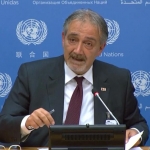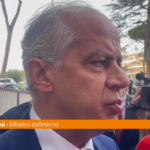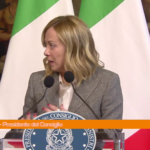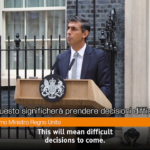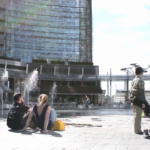That Great Britain has never been a supporter of a Europe without borders is nothing new. However, what we are recently witnessing is an increasing rift between British approach to asylum and immigration and the one adopted by other EU members, with criticism arising from both the latter and forces within the country.
The UK, which doesn’t adhere to Schengen Agreements, has a particular position concerning the arrival of foreigners in the country. A strict policy, which doesn’t categorically exclude immigration but allows it in a controlled form. It encourages the entry of skilled workers and students, potential resources for the future. Conservatives’ key principle is simple: protecting country’s interests and security. Therefore, those who want to work hard and contribute to this goal are more than welcomed; no place for the others.
If a similar approach doesn’t draw particular attention in normal times, perspectives change when a massive wave of migrants affects the whole European territory, altering the internal balance of several countries. In the last years, Europe has witnessed two major waves of migration. The first coming from Libya, the second from Syria; both the two still in progress (though with different characteristics and intensity), both related to the breakout of conflicts in those countries, thus forcing people to look for a better future on the other shore of the Mediterranean.
These waves of refugees have provoked emergencies across first countries of arrival –above all Italy, Greece and Spain-, which had to welcome a number of people that goes beyond the capabilities of existing welcome facilities. Hence, the call for help to EU partners, in an attempt to share more equitably the burden of people arriving, thus guaranteeing them acceptable living conditions without compromising security and order of the country itself.
Britain seems to turn a deaf ear. During the Libyan crisis, Mr Cameron made the Royal Navy available for rescue operations in the Mediterranean, but categorically excluded the creation of welcome facilities in British territories. However, if help was needed, it wasn’t at sea, but on land, after the rescue. Syrian crisis did not make British government more inclined to support the EU allies. Opt-out from the UK, indeed, on EU quota system, which consists in the relocation of 160,000 refugees currently in Italy, Greece and Hungary among other EU countries, in proportion to the capacities of the country. However, British PM promises to accommodate 20,000 refuges over the next five years: quite a paltry sum if compared to the commitment of other nations, e.g. Germany, which accepted to take up to 800,000 refugees by the end of 2015. Moreover, British offer concerns only refugees still in the Middle East and not the ones already arrived in Europe, solution that –as EU members have noticed- doesn’t really help to alleviate the emergency situation in first countries of arrival.
Hot spot in EU fora, immigration issues are an element of tension between the political and social forces of the country. Major criticisms come from the Labour Party, which considers inadequate the support provided by Cameron. They refer to human rights, fundamental principles of the EU and to the history of their country, a sanctuary of hope and hospitality after the Second World War. What happened to this tradition? What do the rights enlisted in the Magna Charta and the Universal Declaration mean?
In respect to these rights, another criticism arises from a different actor, British Charities. The major disagreement is related to families’ reunions, allowed by the system in place but with several restrictions. Only spouses and children under 18 are allowed to enter the country. Adult and other relatives are excluded from these lucky people. Why? Aren’t they experiencing the same pain? If you look at children, the situation is even worse. Unaccompanied children have no right to reunite to their families, even their parents. As the traumas of war, of the escape, of the arrival in a foreign country, where they don’t even know the language, would not be enough. In addition, the distance from their loved ones, the awareness of not being able to see them and the uncertainty about their future and lives. Where are human rights?
The question is: can we do something more? Maybe yes. Hence, one wonders why a country like Britain, -built on certain values and principles and with an economic capability that allows to afford a stronger efforts- pulls back, turning his back to the EU allies, when his help is most needed, but also compromising that image of guarantor of rights that has been built over the centuries. A UK that seems to take more distance from Europe, in order to protect its borders. How far can this go before such an attitude becomes counterproductive? It is no longer just a matter of Brexit or not Brexit. It runs the risk of challenging Nation’s fundamental values, with the following implications this may have in terms of internal stability.

